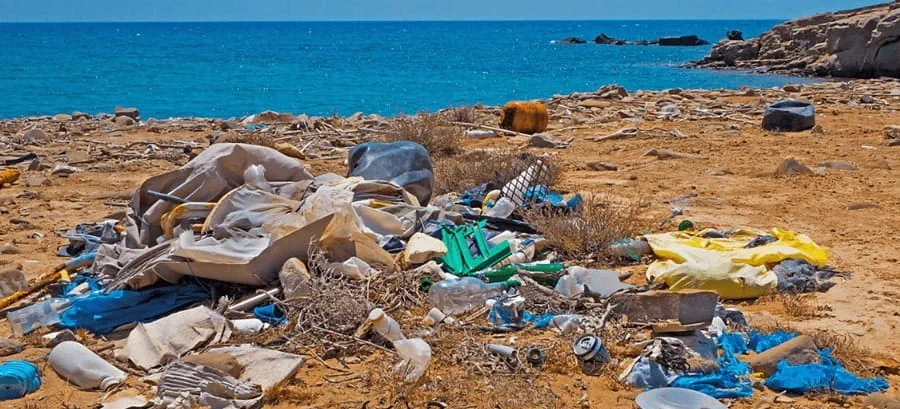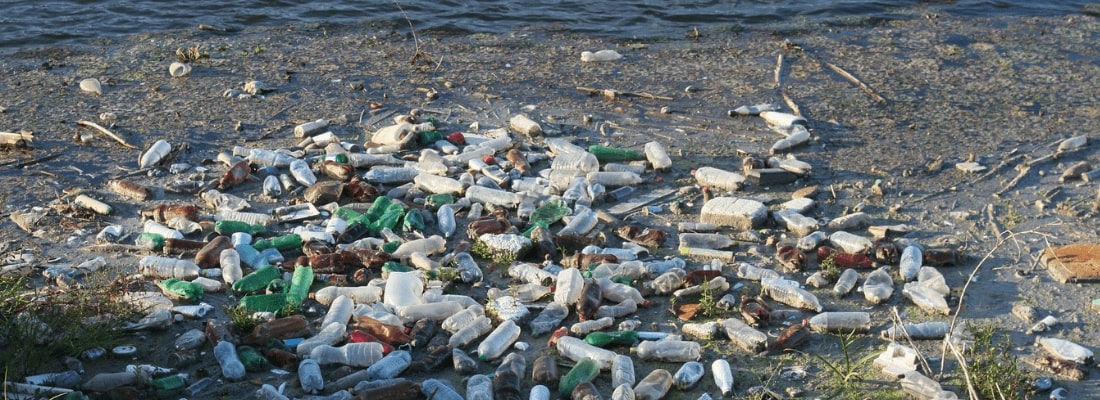Most of us are now familiar with the staggering headline statistics: 5 trillion pieces of plastic in the oceans, 8 million tons leaked from the land every year, potentially more plastic than fish in the sea by 2050, and the list goes on.
According to a study published by the Science Magazine, this all emanates from 6.3 billion tons of plastic waste generated up till 2015, from which around 79% has accumulated in landfills or even worse, somewhere in our natural environment!
Back in February we wrote an article entitled, ‘Plastic in the oceans, a revolution is underway’ and half a year on, we can all see more evidence of that happening.
During this year we have also reported on individual actions from the ‘Ocean Cleanup’, the ‘Great Bubble Barrier’, the ‘Sea Cleaners Manta Vessel’, and the ‘Water Without Waste’ project orchestrated by Dutch yacht captain Marja Kok. Other innovative equipment concepts that will help to clean marinas and harbours such as the Seabin, and the Jellyfishbot will feature at METSTRADE 2018. All of this is evidence that creative and passionate ‘ecopreneurs’ are working tirelessly to reduce the damage to our oceans that mankind has created.
Plastic revolutionist activities across the globe
- World CleanUp Day on 15th September this year, will involve millions of volunteers in 150 countries uniting to clean up the world in a single day.
- 4Ocean, a project launched by two surfers who were inspired to take action by piles of plastic pollution during a surf trip to Bali, has just announced that it has pulled its 1 millionth pound (weight) of plastic trash from the oceans.
Utilising a fleet of volunteer cleanup crews deployed in 27 countries, 4Ocean upcycles the retrieved plastic into attractive bracelets, promising that for every one purchased, they will ‘pull another pound!’ They have also launched an attractive range of reusable drinking water bottles, in a commendable effort to tackle the problem from both sides. - Adidas, the German sports clothing maker, sold 1 million pairs of shoes made from recycled ocean plastic last year, each pair representing 11 plastic bottles. The company has also announced that it has committed to using only recycled plastic by 2024.
- Lego, the Danish invented toy that influences the lives of almost everyone as children, (and maybe adults too) has committed to eliminate its dependence on petroleum-based plastics, and will build its toys entirely from plant-based or recycled materials by 2030.
- Trash Hero Indonesia, is a community action group started by Wayan Akasar a professional tour guide, who became ashamed by the negative comments from tourists about the plastic pollution on the beaches of Bali. He now has 38 chapters across the country, 14 of them in Bali, and he coordinates weekly cleanup events via social media. The volunteers have collected over 15,000 kilos of plastic trash in a year!
- Kenya, the East African country with its coastline bordering the Indian Ocean, one of the five major oceanic gyres carrying tons of plastic waste, has marked the first anniversary of its bold and exemplary total ban on single use plastic. Plastic carrier bags and their smaller, thinner counterparts used for packaging fruit and vegetables have been outlawed for a year now, following a passionate campaign by a young student / photographer, James Wakibia, who managed to influence the government in Nairobi to take drastic action.
Some words of warning
All of this anti-plastic activity is well motivated and will no doubt have some effect, but most environmentalists are pointing out that we have to change our consumer habits. Inventing new materials that feed our consumerism, or increasing our recycling rates will never be enough.
The problem is not just plastic: it is mass disposability. The fact is, that regardless of what we consume, the sheer volume of consumption is currently overwhelming the Earth’s living systems…


